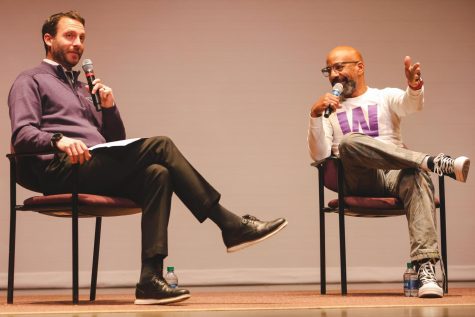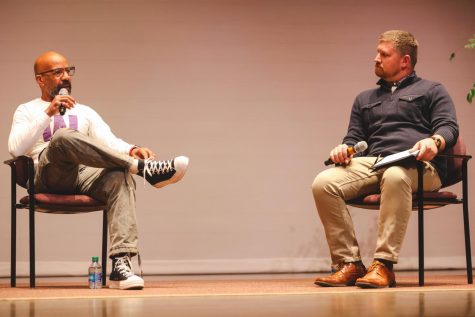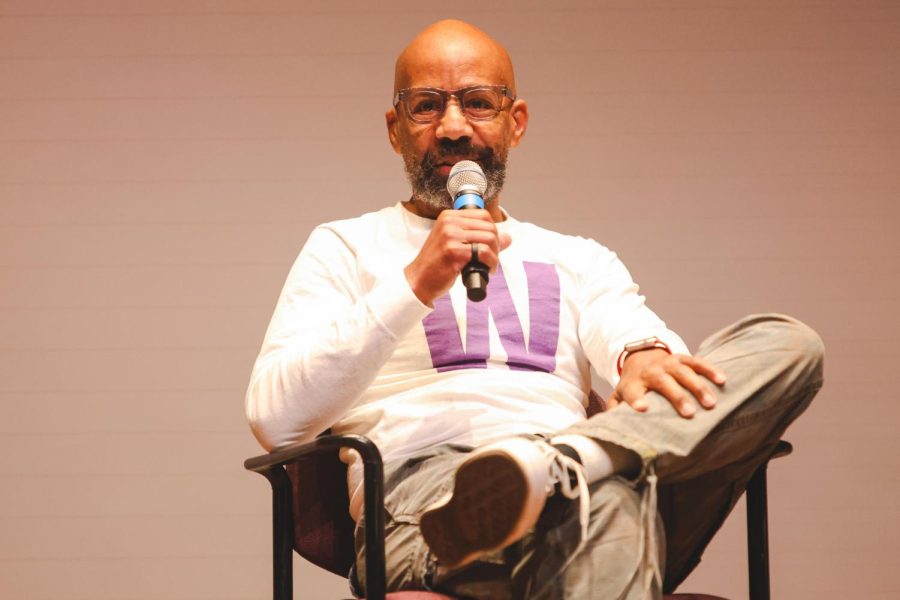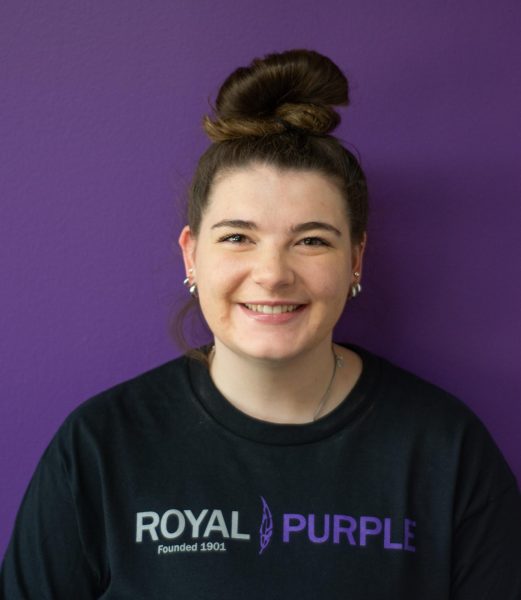More than entertainment
ESPN & Washington Post journalist comes to campus
UW-W Athletic Director Ryan Callahan (left), ESPN & Washington Post journalist Kevin Blackistone (center), associate professor of journalism Keith Zukas (right)
February 6, 2023
From the moment European nations were introduced to the Natives that inhabited the land soon to be known as the United States, the Natives have been misinterpreted. Throughout history, the misinterpretation of these Natives worsened, and continues to be through one of the most beloved American pastimes: professional sports.
In 2022, ESPN and Washington Post sports journalist Kevin Blackistone produced the film Imagining the Indian, that describes the representation of Native people through sports mascots. On Feb. 1 and 2, Young Auditorium, the University Center, and College of Arts and Communication welcomed Blackistone to UW-Whitewater for a screening of his film as well as answer questions about his role in sports journalism and how media should become more mindful.

(Dane Sheehan)
“One of the tenets of the Society of Professional Journalists is always be mindful of what you are reporting and writing, and the impact it has on the people whom you are reporting and writing about,” said Blackistone. “For too long, too many of us were not knowledgeable, did not seek out the knowledge about the names and images and what they were doing to people. I think the media has to be more mindful- slowly but surely there has been an educational public, because we can educate the public and make a change.”
One example Blackistone shared that was similarly used throughout the film was Washinton’s professional football team. For decades, the team held the name of what Native Americans consider to be highly offensive. After 86 of maintaining the title as well as over a decade of protests from Indigenous tribes, the team became the Commander in 2020. While many local, collegiate, and professional level sports are starting to gain different perspectives on what their teams mascots” represent, there is still room for improvement.
“We’ve made huge strides in looking at sports as more than just entertainment, but as an important fabric of society,” said Blackistone. “It’s been here forever, but now we have to tell the truth about it.”

(Dane Sheehan)
Whitewater made similar strides in 1958. The university’s first mascot was a “Quaker,” depicting an early colonist from 18th century America. In 1958, however, the school held a competition to “Change the Quaker,” or find a new mascot. The students voted on the Warhawk, which was depicted as a Native American man known as Mr. Warhawk. Leading into the 1970s, protests were held throughout the campus leading to the change of Mr. Warhawk to Willie the Warhawk, who still serves as the symbol of UW-Whitewater.
“Mr. Blackistone is a memory walker,” said David Wachanga, a professor in the College of Arts and Communication. “He shared with us what I would call a normalization of what is abnormal; an experience we will never forget.”
Whether it be on the field, court, classroom, or office, Kevin Blackistone reminded UW-Whitwater students and staff to be more observant of those around us, as well as the stories they share. Together, we can make a change for the better.














